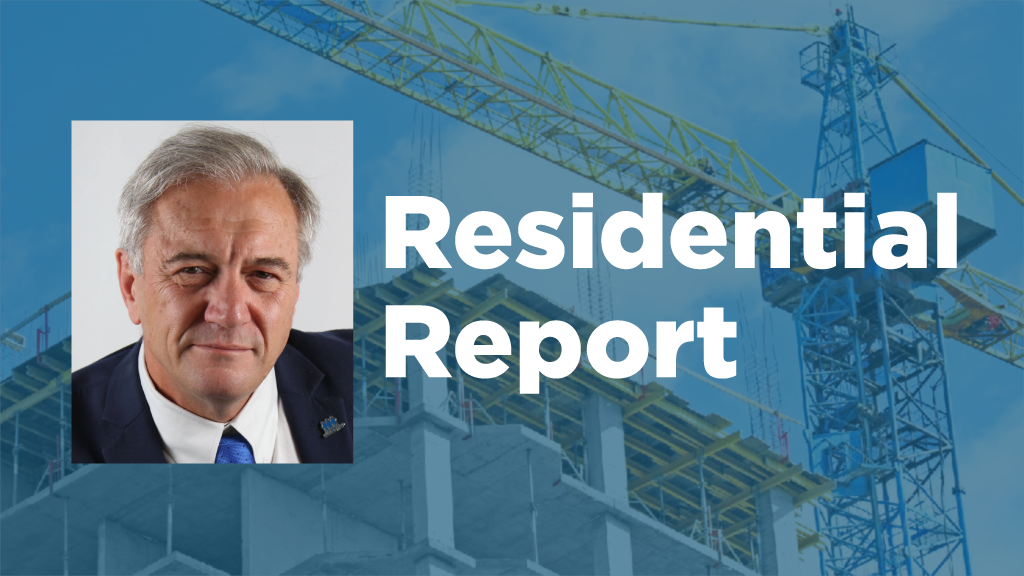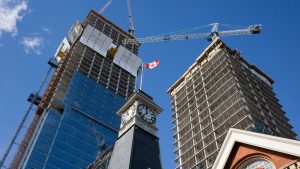At a time when the residential construction industry is finding it difficult to build homes that people can afford, it makes little sense for some municipalities to impose additional green building standards that only raise the cost of new housing further and add to the affordability problem.
But instead of being responsible and doing the right thing at the right time, elected representatives at some municipalities like the City of Toronto seem intent on doing just that.
Let me explain.
In 2010, the city adopted Toronto Green Standards (TGS) with the goal of achieving more sustainable development beyond the minimum standards set out in the Ontario Building Code (OBC).
Previous iterations of the TGS were voluntary but the city now treats them as mandatory. Since being mandated, the city has continually updated the TGS and is now on version 4, with version 5 slated for 2026 and version 6 in 2028.
The rules impose six categories of standards on development projects: air quality, building energy, emissions and resilience, water quality and efficiency, ecology and biodiversity, and waste and the circular economy. The standards are divided into three tiers. Tier 1 is mandatory for all development applications, while Tiers 2 and 3 are voluntary and operate on development charge rebate incentives.
However, provincial statutes do not empower municipalities to exceed the building code, nor have they ever since the inception of the OBC.
The City of Toronto has authority over land-use planning matters and can impose site-specific controls over the development of land within city boundaries. But the manner of construction and construction standards are already governed by the OBC. On this point, there is no debate.
The city’s powers are subject to limitations set out in superior provincial statutes. The City of Toronto Act notes the manner of construction and construction standards are not subject to site plan control.
Because of this point, RESCON has filed a legal application in the Ontario Superior Court of Justice against the city and is seeking a judicial order to that effect. We want an order that enforces the OBC and prohibits the city from imposing building regulations on planning applications.
In our opinion, the city is overstepping the scope of its planning authority by mandating technical building measures already covered in the OBC, which have been progressively updated and grounded in research, building science, thorough consultation as well as cost-benefit analysis.
In 1975, the OBC was established to unify the design and construction of buildings provincewide. The provincial regulation supersedes municipal bylaws.
New homebuilders should have a say in adopting green practices as they want to be part of the solution to climate change, but this municipal approach is not working.
Homebuilders in Ontario are among the most sustainable in North America. This is not the Wild West and the approach to building greener must be based on facts that are tried, tested and true.
Municipalities are not technical standards development bodies. Nor are they equipped to deal with such regulations. This is why building codes are developed at the federal and provincial level.
This problem is not just confined to Toronto.
Nearly 30 municipalities have instituted such standards in recent years. Municipalities including Ajax, Aurora, Brampton, Caledon, East Gwillimbury, Halton Hills, King, Markham, Mississauga, Pickering, Richmond Hill, Vaughan, and Whitby have mandatory standards, with many others not far behind.
Inconsistencies between municipalities when it comes to green building standards only leads to confusion, slower approvals and increased costs. This is not the time to be messing with the system.
We didn’t want to launch such a challenge but had no alternative. We can’t have each municipality cooking their own system — independent of the OBC — and make builders follow it.
We are in the middle of a housing crisis. The situation looks bleak and starts are still declining. Outlooks suggest it is not going to get better anytime soon. We are on track for 81,300 starts this year, short of the 150,000 starts a year that are needed to reach 1.5 million homes by 2032.
Alarmingly, in the years ahead, employment in new residential construction is expected to fall substantially.
This scenario, in turn, could cause significant economic repercussions. This is not the time for individual municipalities like Toronto to be going off-script and imposing their own standards, separate from the OBC.
To build more housing, we need to get everybody singing from the same song sheet. Different rules in different municipalities won’t help matters. Building regulations must be consistent across all municipalities.
Richard Lyall is president of the Residential Construction Council of Ontario. He has represented the building industry in Ontario since 1991. Contact him at media@rescon.com.








Recent Comments